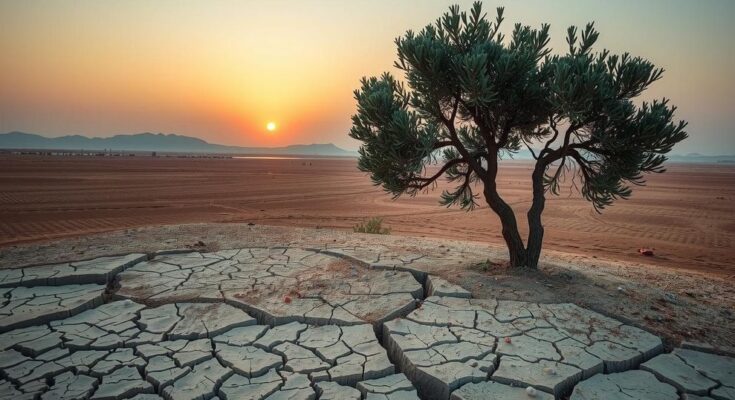King Mohammed VI of Morocco has called for citizens to forgo sheep sacrifices during Eid Al Adha due to a significant decline in livestock as a result of ongoing drought conditions. The nation has witnessed a 38 percent drop in livestock populations and increased meat prices. The king emphasized compassion towards those impacted by these economic challenges while providing alternatives through sheep imports from Australia.
Morocco’s King Mohammed VI has issued an appeal to citizens, urging them to abstain from the customary sheep sacrifice during Eid Al Adha this year. This advice comes in light of a significant decline in the nation’s livestock, attributed to prolonged drought conditions that have persisted for seven consecutive years. The scarcity of rain, reported to be 53 percent lower than the average over the past three decades, has exacerbated the situation, leading to inflation in meat prices.
During a televised speech read by the Minister of Religious Affairs, King Mohammed VI acknowledged the festival’s significance while stressing the nation’s climatic and economic difficulties. He noted that the livestock population had diminished by 38 percent over the past year, resulting in adverse effects on communities, particularly among low-income families. “Performing the rite under these difficult circumstances will cause significant harm to large segments of our people, especially those with limited income,” the king explained.
As a result of the diminished meat production, Morocco has seen an increase in prices within the local market and a rise in imports. To address this issue, the country has recently secured an agreement to import up to 100,000 sheep from Australia. This initiative aims to provide an alternative source of livestock for citizens while mitigating the effects of the drought and ensuring the availability of meat during the festive period.
Eid Al Adha, also known as the Festival of Sacrifice, commemorates the willingness of the Prophet Ibrahim, or Abraham, to sacrifice his son as an act of obedience to God. The king’s message underscores the intersection of faith and socio-economic realities, reminding citizens of their duty to consider the broader implications of their actions in a time of hardship.
In conclusion, King Mohammed VI’s call for citizens to abstain from the Eid Al Adha sacrifice reflects the harsh realities posed by severe drought and declining livestock numbers in Morocco. He emphasizes the need for compassion towards those affected by economic challenges while seeking alternative solutions, such as importing sheep to stabilize meat availability. This compassionate appeal aligns with the cultural and religious significance of the festival, considering the collective welfare of the community.
Original Source: www.thenationalnews.com




